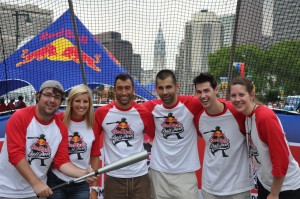 If you are an active follower of trends in social media and sports, then it’s likely that you’ve noticed some of the cutting-edge social media campaigns that Red Bull has launched over the past few years.
If you are an active follower of trends in social media and sports, then it’s likely that you’ve noticed some of the cutting-edge social media campaigns that Red Bull has launched over the past few years.
Red Bull continuously pushes the envelope by implementing creative campaigns that integrate the latest social media tools while leveraging their affiliation with some of the top athletes in the world.
What you may not know is that one of the main drivers behind these innovative activations is a social media marketing agency called Activ8Social.
Activ8Social – Social Media Marketing Agency
 Activ8Social provides full-service social media strategies that influence consumers passionate about sports, entertainment and lifestyle. The company was co-founded by Anthony Caponiti and Steve Cobb back in 2009 and together, they have built an impressive client list that includes the United Airlines, Red Bull, New York Red Bulls, Tiger Woods Foundation, AT&T National, and US Open Tennis Championships.
Activ8Social provides full-service social media strategies that influence consumers passionate about sports, entertainment and lifestyle. The company was co-founded by Anthony Caponiti and Steve Cobb back in 2009 and together, they have built an impressive client list that includes the United Airlines, Red Bull, New York Red Bulls, Tiger Woods Foundation, AT&T National, and US Open Tennis Championships.
Activ8Social also works with a number of high profile athletes in building out their digital brand including Rajon Rondo (NBA), Blake Griffin (NBA), Deron Williams (NBA), Reggie Bush (NFL),DeMarcus Ware (NFL), Tim Lincecum (MLB), Thierry Henry (MLS), Rafa Márquez(MLS), Jimmy Rollins (MLB), Rickie Fowler (PGA), Paul Rabil (MLL/NLL)
Activ8Social Co-Founders – Leaders In Sports Social Media
I first had the pleasure of meeting Anthony & Steve about 2.5 years ago while out in Washington on a sports trip. At that time, they were only a few years into their new business venture, but it was obvious that they would be doing some great things in the years to come! Well, fast forward to today and it is evident that they have made their mark in the sports industry and continue to establish themselves as thought leaders in sports social media!
If you at all interested in breaking into the sports industry, you are going to want to check out the FIRST EVER double interview on Sports Networker below. During this interview, I talked to Anthony and Steve about how they first started working in sports, the path they took to get there, the growth of Activ8Social over the years and lessons learned along the way. The guys also provide some great tips for anyone looking to break into the sports industry.
Once you are done watching the interview, make sure to follow Activ8Social on Facebook and Twitter to stay up to date on all the latest trends in sports and social media.
If you have any questions for Anthony or Steve, please leave them in the comments below. You can also connect with the guys on their personal Twitter accounts – Anthony (@caponiti) Steve (@Steve_Cobb).
Activ8Social Interview With Anthony Caponiti & Steve Cobb
Interview Transcription
Hey everyone it’s Trevor Turnbull here with sportsnetworker.com and I’m really excited to introduce all of you to two guys that are really starting to make some waves in the sports industry; especially as it relates to working with big brands and athletes and integrating social media and all of these cool new tools that these entities can take advantage of; Anthony Caponiti and Steve Cobb. How’s it going guys?
Anthony Caponiti and Steve Cobb: Excellent, thank you Trevor. Thanks for having us.
No problem. These guys are co-founders of a company called Activ8Social and we must have connected I think over two years ago now isn’t it guys?
Anthony: Yeah. I think closer to three actually.
Yeah. Time has flown by for sure. We first connected in DC, in Washington, when I was actually out there on a sports trip and we were talking about best practice on the social media side of things and I believe you guys were just getting started with the company back then. Since then I’ve seen you grow this company into working with Red Bull and and a number of high profile athletes and I’m really excited to sit down and chat with you about not only how the company has started but your own paths into this space and that back story behind that.
This is the first ever two person interview that we’ve ever done on Sports Networker so we’re going to riff on this and we’re going to see how this goes.
Anthony let’s start with you. If you can take us back a few years and just let us know how you got into this space and how you and Steve come together to create this company.
Anthony: Yeah, that’s great. It’s an interesting story. I know a lot of the objective of what you’re trying to do with these interviews is try to educate; especially younger people trying to break into the industry or even mid-career for that matter; but my path, and I think Steve’s path as well he would say, is definitely circuitous in a way. It wasn’t a direct path of me waking up one day and saying, “I want to break into sports marketing.” For myself in particular, I was an NCAA athlete, ran track and field at Emery, a Division III program, but sports has always been a primary focus in my life. I was an athlete from day one, competitive from a very young age, something I was clearly passionate about.
I went to business school at Emery and came out and, like a lot of students in a business program, took a job working strategy and change consulting at IBM. I was there for close to two years and had a very successful career while I was there, really enjoyed the work I was on. But I was in a very different sector from the type of work that I’m doing today; this was public sector work, working with government clients.
With all of the lessons that I learned there and visibility I was given and the project managing and the skills there was a certain need that was unfulfilled and other interests that lie. Where the story really starts is, even though Steve and I had graduated the same year I had taken a fifth year at Emery because I had torn my ACL so we were actually on different paths. Steve was a year ahead of me in his career path and I was a year behind. The stagger ended up being, what I think, the beginning of the story because Steve’s career had taken him in one direction and was really itching to put out some ideas that he had been kicking around in the marketplace. I have to give him credit; he’s the one that took me in for the ride. I think Steve can do a good job of really telling us where the story begins but in my particular situation I bridged entrepreneurship with a full-time job. It was a heavy load to take, and I think a lot of people have been there before, 100 hour weeks; coffee shops at night; but Steve should tell a little about the full background of where it all starts.
Steve: Similar to Anthony I went to college as an athlete, I played basketball at Cornell and I was a psychology major but didn’t really know what I wanted to do with psychology. I didn’t want to play overseas so I decided to stop playing after my sophomore year and and double-majored in Economics so that I could try to eek my way into a finance job.
I was highly under-qualified but through networking and alumni I was able to get into an investment banking job at Legg Mason in Baltimore. I just sold the fact that I was a college athlete and I was local and I found my way in there. I just kind of learned as I went along. I was in the for-profit education industry, which wasn’t my selection, it was just where I was put in.
I was able to take the retail aspect of that industry and learn a lot. I would have never thought that I could start my own company until after my two years in investment banking. The typical career path is you either go into private equity or you go back to school. I looked a little into private equity but around that time I was getting a little feisty; I didn’t really feel like this is where I should be. I kind of wanted to do something that I love. The hours were unbelievable in investment banking, it took a big toll on me, and I started asking one of the partners at the investment bank about the sports industry and sports marketing in particular.
He would give me a little bit of advice here and there but it really sparked when I came across a couple of Web sites. In general I was just looking at social media and MySpace was huge at this time, Twitter didn’t exist, Facebook pages; if they did exist they were groups and marketing and stuff like that. We just saw an opportunity; there were no athletes on social media whatsoever, in fact the only people that were doing anything like that were, in the Washington DC area, Gilbert Arenas and his blog on NBA.com. It was very popular at the time and it was groundbreaking. Then Chris Cooley from the Redskins also created a blog but, like I said, there was no athletes on MySpace, Friendster was the other big network, so we said, “why don’t we create this service, this platform, that’s facilitates athletes engaging their fans through social media?” Because we’re going to make the guess, and we were right, that they’re going to get on it and eventually they’re going to follow musicians path.
Anthony: We were right?
Steve: It turns out I think, yeah.
So we made the right guess and the right prediction and we wanted to be the first in the market. So here’s the deal: we really didn’t know what we were doing. I said, “Anthony, I need a partner, here’s the idea.” He obviously thinks a lot like me and agreed that this had potential and I said, “we just need to prove ourselves. Let’s build this product and let’s try to get some athletes on the platform and then get fans and get funding and grow from there.” So I took out all of the money that I saved in my 401K, I saved the max for my first few years like I learned in personal finance class in college and I just took the penalties and took it all out. Lucky it was right before the market crashed so it worked out.
So now you look like a genius.
Steve: Yeah. So in one sense it hurt that we tried to start our first start-up at the start of the recession but in the other sense my money was in me. It wasn’t in these other companies and that’s one thing that we’ve learned. It is a good thing to invest in yourself and there’s a lot of different ways to do that, a lot of different degrees to do that.
So we started this Web site and we knew that typically you’re supposed to build the product step-by-step, come up with the minimum viable product and don’t fiddle too much but with our situation, we wanted to be the first to market, we felt we needed athletes and big names on the platform to attract fans to then attract financing. We didn’t have a record of previous startups or experience that people would invest in us as individuals, as a team, but we felt that this was the path that was best for us. Along the process of trying to build this product, not having the technical experience and background on the business and marketing side, Anthony and I went through some growing pains but we met a lot of people and we did a lot of very valuable networking. We learned experience that we couldn’t have gotten from anybody as a mentor or reading in a book or whatever. It’s just strictly real world experience as an entrepreneur taking a risk.
What ended up happening was, as we were building it out, Twitter came out and Facebook pages really started blowing up and, sure enough, athletes were on the Internet. We found ourselves trying to catch up and tweak the product to stay up to date with it but it was a losing battle really. I’ll let Anthony talk about how that road into Activ8Social but that’s kind of how we got started.
Yeah. Tell me, when was this? Was it two or three years ago when you guys officially both dove head first into Activ8Social as a full time thing?
I know I can totally relate to this, I’m sure a lot of people watching the video can relate to it, when you first start that venture you might be working a full-time job and then putting in your after hours until two in the morning working on your other business right?
There always seems to be that one point where things start to tip and you realize that, “yes were on the right path.” When was that for you guys?
Anthony: Yeah, excellent question. You’re right it’s good to put context on it. We first set out with the StarBurbs adventure; that was in 2007. As Steve said, that’s right before Facebook pages rolled out and that’s right when Shaq takes Twitter; so that’s the context of the timeline.
At that point I remember saying to Steve, “Look at the way Shaquille O’Neal is making waves in the headlines.” Typically you see that the innovation and best ideas come to the sports vertical last. We kept asking ourselves why is that? Does it have to be that way? Is it inherent to the business model? Why is it that music is the innovator in the space and entertainment? There’s obviously reasons, they were forced to get creative with the revolution of digital music. I think very quickly we realized that we were on the right path but, as Steve said and we’ll talk about this and what I think a lot of people want to hear, for two people breaking into an industry of which we didn’t come out of a program saying, “we’re grooming ourselves for sports marketing,” we didn’t have those internships; you’re not in the network and you dont have those contacts. Much of what we spend in the three years in what we built in StarBurbs, which ultimately ends up becoming Activ8Social as it is today as we evolve the business model, was becoming. Building that network. That’s what we want to talk about today because thats really the key to the whole success was breaking down doors and building those contacts.
Yeah. StarBurbs, I totally forgot about that but, that was where you guys were at when we first met too. I remember you telling me about the platform and the business that you were trying to build.
I know we went to a networking event, you and me Anthony, in New York and I know I still speak to this all of the time: the fact that I saw that these social tools opened up a new world to me that I didn’t know existed before. It was breaking down that gatekeeper mentality where you can access the right people that could help you get to where you wanted to be even if you don’t know what that opportunity is yet. These are people that had experience in the industry already that could provide guidance and mentorship. I know you guys both said mentorship already a couple of times and we’ll talk about that.
How does that for you guys, the idea of social media; obviously its a big part of your business right now, how does that influence the direction of your company from an individual perspective. The whole social media boom that happened over the last four or five years.
Steve: Yeah. Social media is our agency; we are a creative social media marketing agency essentially. With the product, StarBurbs, that we were talking about, just as a quick background, it was a platform that facilitated athletes use of social media. A post once, published everywhere utility so that they could post a photo of video or blog or whatever and it would go to their MySpace page or their Friendster or Facebook page, etc. So it was a big idea, it was very ambitious.
Along the way, like Anthony said, we met a lot of people and he was actually writing a blog I think for StarBurbs that was catching on and he was noticing that there was a lot of traffic. It was kind of a side thing as we were building this product in stealth. We also got on Twitter and he put a lot of effort into it and ballooned up his followers. We started to see that there’s definitely a value there and if he can grow his followers to this many then imagine what an athlete can do. When fans are hinging on everything they say, everything they do and they want more insight to feel more connected to the athlete off the field.
So what ended up happening was we had an opportunity to work with Red Bull as kind of an experiment with one of their athletes to activate him through social media. He didn’t have any digital presence, it was Jimmy Rollins of the Phillies. He didn’t have any digital media presence and we came in, built out his Facebook page, got him on Flickr and YouTube, tried getting him on Twitter. So we build out those profiles and ended up doing an activation for him during the World Series, and that was still kind of as we were doing the other product.
We decided its a losing battle lets just fail forward with this concept. Lets not bring this to the market where we have to raise funding and worry about maintaining it. Lets start fresh and create this agency. The whole point of that was just to make money on the side because there was no revenue model in place for that other company other than getting funding and then, possibly down the road, getting money. That led into the agency and services model.
We came up with a new entity, Activ8Social, obviously in the name you can tell social was core to what we wanted to offer. A lot of it revolved around activating athletes in their social channels to build out those properties. At the time, many of them just didn’t even have social media accounts. They weren’t on Twitter, they had very limited or fake Facebook pages and we knew that they had a huge audience out there; that’s where the fans were. It was just a matter of going out there and establishing the presence and then growing those properties. That proved to be a very successful model and with Red Bull we grew. As they brought in more athletes they looked to us and luckily we got to work with some athletes that were on the big stages of the Super Bowl, World Series, NBA Championship, and we were able to do a lot of activations that got a lot of attention in the media.
One of the things we pride ourselves on is trying to be the ones first to do something so we were big on FourSquare and Facebook places and checking in. We ran the first ever FourSquare athlete contest and Facebook places contest; FourSquare was with Rajon Rondo called #LooseBall and Facebook places was with Tim Lincecum called #Strikein. I’ll let Anthony take over but social media, as you can tell, was our core service offering and, beyond what the company is doing, personally we were really establishing our individual followings and profiles within those networks and those channels and platforms. It really helped grow connections with people like you and others; it’s a very close-knit community in sports and social media. We’re sort of like music and social media. It’s been valuable on multiple fronts and it really is who we are.
Speaking of the business side of things then, you guys have obviously done some amazing stuff with Red Bull as a client and you mentioned that. It seems like once every couple of months you get a new athlete on board that is rising up in their sport and really becoming a face for Red Bull.
There’s kind of two aspects to it right? There’s the athlete themselves and getting them familiar with and comfortable using the tools and then there’s also coming up with creative ideas of how you can leverage that audience so that Red Bull can see some type of benefit from it; whatever it happens to be.
When you guys first started, let’s go back to working with Jimmy, you mentioned that he didn’t really have any presence on Facebook. How much work did you guys have to do to actually train him on how to use these tools? Or were you guys managing a lot of that stuff for him, for the athlete in particular?
Anthony: It’s a great question because here in that is the growth of the industry and the value that comes. The answer is that we did have to do a lot of work. He and his agency were interested and that’s why Red Bull, beyond the fact they had this athlete, had an opportunity to bring one of their first athletes in the fold. They had already signed Reggie Bush and Reggie was active but there was really no formal relationship. Jimmy and his agency understood early on the value of Facebook but there was an element of unknown. What really is the point of Twitter? What is my time going toward? Why do people want to hear about what I’m having for lunch? The classic things you’re used to hearing about early in the industry. So yes, there very much was an early learning period of saying, “what is the value here? what are we all trying to work toward and what is the goal?”
At the same time we were falling into it really quickly. That was the name of the game back in 2007, 2008; getting on there and just experimenting. We can’t make up the fact that there was some experimentation involved but yes, certainly but I think very quickly Jimmy as the athlete and the agency quickly understood the value. As Steve mentioned, what ended up being a catalyst for much of our future success was that the Phillies made a run into the World Series and we ran a promotion at the time looking for Jimmy’s top fans. This was actually, believe it or not, before Facebook had formal guidelines. Without going into details, it wasn’t a very complicated promotion but what that bore out was the inherent value of the fan to athlete relationship, the value of why it’s worth the time to invest your money both from a sponsor perspective to activate and from an athlete and management’s perspective. That was really the case study that proved it all – the World Series was a great breeding ground.
Yeah; you actually bring up a great point, I totally forgot about this but I wanted to mention it too. You guys have had some uncanny things happen as it relates to which athletes you’ve been working with and the stage they end up being on. I’ve noticed that with Reggie Bush, for example, and the Saints go and win the Super Bowl.
Didn’t you guys launch a Facebook photo contest or something a couple weeks before the Super Bowl?
Steve: I’ll just tell you the story really quick.
We start with Jimmy; he went to the World Series that year and obviously that’s what Anthony was talking about with the experimental.
So we were given the opportunity to work with Reggie Bush, who had I believe at the time over 1 million Twitter followers but no Facebook page. So we got him on Facebook for the few months leading up to the playoffs and grew it to about 17,000 fans. Then the first game of the playoffs he comes running out of the tunnel with a wooden bat and the coach gave something to all of the players that said, “bring the wood” and that was the playoff model for that Super Bowl winning season and Reggie just really loved it. A lot of what we try to do is just be clever and take something that recently happened and activate around that, around a big event. That’s a time when fans are going to be engaged, when your properties are susceptible to growth and spikes in growth at that. It takes a lot of groundwork, you have to be able to lay the groundwork to take advantage of those opportunities but we saw this as something where we pitched a basic Facebook photo contest back when, lets be honest, there was less traffic in the newsfeed and you got more comments and more stories relating to things that you did in the newsfeed. It allowed pages to grow faster and quicker, it’s not the same nowadays.
The contest was called Who Dat Fan based off of the Who Dat New Orleans Saints model and rally cry. We just chose one photo that had the most fan votes and another randomly and gave them all a Red Bull branded baseball bat that said “bring the wood.” That grew his page from 17,000 to 250,000 in a 45 day period. We don’t take full credit because the fact that they went to the Super Bowl and won it really drove a lot of people.
Nah that had nothing to do with it. It was all you guys.
Steve: Maybe he only would have gotten 100,000 instead of 250,000. That went on and he was the most popular athlete on Facebook.
Anthony: But you’re right; there was a crazy run and we can’t take credit for that necessarily. That’s the good folks at Red Bull signing people. There was Jimmy in the World Series then there was Reggie in the Super Bowl then there was Rajon going to the NBA finals and of course they get back. It’s been talked about before; Red Bull has just had an uncanny run. You can’t take that away from them but there’s obviously a method to the madness in their science. They have put the time in.
No doubt.
Steve: They put in the work so that they can take advantage of those opportunities.
Yeah. That’s what I was going to say about that too. There’s no doubt that it’s impossible to script some of the things that have happened over the past couple of years. At the same time because of the fact that you guys have had your finger on the pulse of what that next big thing might be or how you can get more engagement from the fans by tapping into something that is very timely, you saw the results.
That, I think, speaks to the new model that you guys have created in your agency, if you want to call it that. It’s a new model; it’s not the old school model where you’re putting together strategies that were based on traditional media that hasn’t changed a whole lot over the last 40 years. The stuff that you’re doing is reactive and it’s something new every day. You see Pinterest comes out and all of the sudden there’s this big explosion on Pinterest.
I have no idea what you guys have upcoming in the future but I know in the past I’ve seen campaigns where you guys have used FourSquare before people were even considering using that as a marketing tool. You guys gotta take a little bit of credit there; it’s not all luck right?
Anthony: No, no. You raise a very valid point; part of the interview is also to educate people on our path in the industry and the evolution model. Of course you always have to take credit where credit is due but, like anything else in life, timing makes a difference. In our first effort the timing just wasn’t there but with the evolution of our understanding and a business model and the timing it all started to click.
Yes, you’re correct. In this industry what’s paramount is the balance between forward looking and keeping your foot where today is because our industry is quite overwhelming. You can get on Mashable and your head can explode right? It’s just that simple, how many people are coming into a new space and having new ventures. You bring up Pinterest, you bring up Google+, these are great points. What an agency like ourselves has had so much success doing is finding the balance of trailblazing with the strategy that is achieving the goals of the client.
Again the key there is goals; I think too often there aren’t proper legs that are given to a promotion in the space and make sure that PR is supporting it. That you’ve carved out a certain percent that is going to be experimental but ultimately, to really get to your point, that’s the key. We hinge on creativity and that’s what makes us successful.
Steve: Just to piggyback that is kind of the essence of the industry that we’re in. It’s constantly evolving and the landscape is just so dynamic that you can’t be experts in social media because it’s always evolving, it’s always changing.
On one hand thats a con because we can’t establish ourselves essentially as the leaders in the space because there’s always people pushing up against us and Facebook makes changes called timeline to the brand and everything we’ve done up until now has to be rethought and reworked.
On the other hand as long as we’re creative and as long as we’re constantly thinking of what’s on the cutting edge and keeping abreast of all of the new platforms and what type of opportunities they present, what type of fan demographic that would reach; then we can stay ahead of the game. I like the challenge. It keeps you on your toes and that’s another thing where people looking to get into the industry have so much opportunity. Whether it’s creating an agency of your own or stepping into a role that never existed before for a team or an organization. The young people of this generation is a generation that lives and breathes social media.
It’s a natural extension of who they are in their identity. The generation, the seed level, you can’t say the same for them. They look for the younger people, people in their 20s and 30s, to lead up digital efforts and social campaigns and I think that’s a huge opportunity for people looking to get into the industry. Whether it’s for an internship or a paid basis. Social media that it.
Yeah. I’ll bring it back to talking about you guys as individuals and as co-founders of the company too. You mentioned that all of these resources are out there for people to educate themselves on these new tools and how these are evolving into new roles essentially with sports teams and agencies and that type of thing.
What do you guys do typically? Where do you spend most of your time in keeping up with the latest news and finding those people that are writing about the latest trends and all of that kind of stuff. What’s your guys’ go-to tool?
Anthony: It’s a great question and I think you’ll appreciate this answer; blogging. I’m a firm believer in learning by doing, and I hope this is true when we’re sitting down and doing an interview three years from now but, we believe in rolling up our sleeves every single day while managing a business and that’s how you learn. Frankly I’m still actively blogging, trying to put out thought leadership in the space, on our Activ8Social blog, which has gotten a great reputation.
That’s how I learn; looking to grow in an area and to learn about your weaknesses what better way then to get out there and write about it? It’s cathartic to begin with and it’s a great way to learn and that inherent research, to be honest with you, is where it comes from. It’s learning by doing.
Steve: Yeah. Anthony is more active on the company blog than I am. I should be more active but he does a good job of that.
I do a lot of reading so Sports Networker is definitely a publication that I go to a lot and I visit.
Shameless plug.
Anthony: Hey, you gotta throw it in.
Steve: But it’s true.
We also have an industry newsletter that our employees put together and luckily they do all of the work and they go out and find all of the latest social media news stories and I have a little cheat sheet I can go to and check it out from there.
Beyond just staying up to date with what’s new in terms of news and blogging a lot of what we do is campaigns and promotions and activations. For me most of my time is spent checking out other activations, other contests, seeing how brands not even in the sports space are creatively engaging their fans through different platforms. Right now Pinterest is labeled as a female demographic in the majority so where it fits in the sports industry is more along the lines of we have a women’s club of fans, let’s figure out how to leverage Pinterest to reach them and better form a relationship with them.
For example Under Armour has a big plan for their female apparel line; I think it’s going to outsell their male apparel line. Pinterest is a platform they could definitely get more involved with. With that said, I’m just keeping an eye on maybe a brand in fashion or another industry that might make sense for Pinterest right now, what are they doing and how are they leveraging that because eventually it’s going to be more relevant to sports.
A lot of our ideas are kind of tweaked from other ideas that we’ve seen from other agencies or other brands. It’s not necessarily out of thin air.
Anthony: I think too, Trevor, you always have to give credit where credit is due and that’s the beauty of an agency model. We have a lot of bright people here that work with us and to say that I learn everything on my own is not true. Certainly I rely on the bright minds because, as I said, your mind will explode.
No doubt. To give the shout out right back to you guys I know us at Sports Networker follow with you guys to stay up on trends.
I think that’s that important thing to get from all of this; you dont have to be the be-all expert in everything right? There’s so many smart people out there; everybody is researching their own thing and finding a different spin on how something is done and how it might relate to future campaigns or trends and that type of thing. That’s one of the most important things, I know, that we try and relay to people that follow our blog is that these resources are available to you if you just go out and follow them but if you can actively get involved and write on your own and have your own opinion on something, start a blog, it establishes expertise. I’m sure you guys can attest to this now that you’re company is growing, when you’re starting to hire people, I know for us whenever we’re screening, we’re looking to see what these people are talking about. Are they actively using the tools that we’re going to be hiring them to use for the business as well? Would you guys agree with that?
Anthony: Yeah, definitely. You bring up a valid people because one thing that I really believe in is giving back to the community and you can’t hire everybody, not everybody can be an intern but you can certainly give your time back because I have given back to people that have helped us along the way.
I think you really hit home something that is really important – it is an industry, again, that relies on innovation so you can’t be an expert in everything. You just simply can’t in my personal opinion and seeing yourself in that way can be a negative. I think often in our space it’s refreshing when people hear somebody say they have a real niche, they have a focus and understanding. “I get this vertical. Geolocation is my bread and butter.”
Advice that I would give to somebody, especially breaking into the space, is don’t feel like you have to be an expert in everything or that you need to try and be everything to everybody. Follow your passion and let that take you where it goes because there are so many great opportunities in terms of technology. First of all you’re not going down a path that’s very successful because you can’t be an expert in everything. It’s really true.
That’s actually one of the questions I was going to ask you guys because we always ask our guests in these interviews to provide some feedback on whether or not you should try and learn a little bit about everything. I know if you say, “I want to work in sports,” there’s a number of areas to work in sports. Ticket sales, sponsorship, marketing, the online side of things. I would say 80% of the time we always here from people exactly what you just said – don’t get overwhelmed by everything; try and really become an “expert” in your niche where an expert is not someone who learns and now they know something about everything but you’re constantly learning.
I think that’s one of the most powerful things about the social media side of things from a personal perspective. It gives you the resources to learn all of the time right? There’s always something new coming out, there’s always somebody smarter than you out there that’s going to be able to feed you with the latest information. I know that’s how it’s changed my life and I think you guys can attest to that as well.
Anthony: It is life-changing. Entrepreneurship is a beautiful thing; it’s a way to empower your ideas and see your creativity put into the marketplace and to really bring something to life that’s your own.
It’s like anything else – as we talked about in the beginning of the story we didn’t come from a sports marketing background so how do you break in? You break in by doing. We’ve rolled up our sleeves everyday, day in and day out, for nearly five years building an expertise in the space and building relationships and really beginning to understand what it takes to create an integrated strategy. There in is my advice to somebody, again breaking into the space, you can’t take away the hard work part of the formula. You can have a little bit of luck along the way but it takes hard work. Recognize that fact and you’ll be better for it.
It takes internships, it takes learning by doing, it takes blogging like we’ve said and learning what content management really means and why content management is so powerful.
That’s my feedback generally and it really starts there; learn, do. The internships will grow you and you have to put in your time. It’s part of the way the game works but I’m a firm believer in opportunities presenting themselves when you work hard and put yourself out there. If you never leave your room, never leave your college dorm you’re not going to meet people. If you go out and intern and put your time in that’s how you find opportunities. Then, guess what happens, eventually they find you.
Yeah. They’re not knocking down your door unless you’re out there actively showing them who you are and what you know.
Anthony: Yes sir. That’s absolutely right.
Steve maybe if you can elaborate on that too. I know one of the questions I wanted to ask you guys is advice that you guys would give to students or anybody in general that might want to break into the industry. Whether it be networking or education. I know you speak to this too, the idea that both of you started without the idea that you were going to start a sports marketing company. What would be your number one tip for people on what they should focus on or what might be most helpful for them.
Steve: It’s tough to say what’s the number one.
I’d say it’s a given that you should network. Networking, having relationships is how 75%, 90% of people get their jobs or people get their business. There’s a lot of other agencies out there that might be more qualified to do certain work but other agencies get it because they have a preexisting relationship with that client or that brand. I got my job in investment banking because a Cornell grad was the one who was recruiting me, being frank. Once I got in I took advantage of that opportunity; I leveraged that and I moved on and etc.
Getting a lot of experience, the sports industry is very different than any other industry. It’s fun, it’s competitive, that means you dont get paid as much, that means you have to do stuff for free. In this day and age teams and other sports clients and different organizations are always looking for assistants. If you can be somebody who helps them out, volunteers, something out of the ordinary. Not just something that you hear at your career counseling class, do something that makes you stand out, that is different, that showcases what you want to showcase your talent in.
For instance, if you’re trying to get a job in social media, do something creative. Think outside the box.
That’s what stands out to me but also having a story; telling your story. Having a reason why you’re good for a position, whether it’s paid or unpaid. I formulated my story on why I should into banking because I was an athlete and that’s why I dont have so many internships. I was dedicated to my sport and it shows that I have a lot of hard work and I’m a team player, etc. Then on top of that I was local so I played that up. Most people don’t really have a good grasp on what their best story is when they’re trying to talk to an employer or a sports organization. You have to stand out from the pack. There’s so many different ways you can do it now and I think that’s the number one thing. Show how you’re unique and understand what your story is.
Anthony: Yeah. I think another good one Trevor is, there’s two things and I’ll keep them nice and short, persistence. We’ve all gone through it, we’ve all tried graduated and tried breaking into the industry, it’s tough when somebody says, “go be creative,” or “go use these tools you have.” Easier said than done. Guess what I sat in an interview and nobody paid attention. Persistence. Persistence pays off. I think there’s a fine line to know when you’re bothering someone who is being productive and persistent but guess what, you can wear people down in a professional manner. You can put yourself in a light where someone can’t ignore you any more. That’s happened before, we’ve had interns come to us in that way. Guess what, if you’re good and you know you’re good and you have skills and know you can contribute somebody is going to take note of that. People are looking for talent, they’re looking for bright minds and eventually somebody will see that and take advantage of it.
The other thing is it’s the small stuff. If you have an “about me” page and it just shows off your handles and you’re actually using these different mediums that goes a long way. It goes a really long way in breaking into social media, just that entry to say, “I get it.” At least they understand the scene. Now let’s look at little deeper.
Steve: One last thing. This is something that you might not hear normally but knowing who you should create relationships with; not just networking but being smart about your networking. You can network on at scale with these different social media channels. Yeah there’s somebody that’s in charge on the internships at the Washington Redskins, for example, but that’s really maybe only helpful for the Washington Redskins and there’s tons of people like you that are trying to get in touch with that person.
Meeting somebody that owns an agency or that is very influential, has tons of followers on Twitter; if you build a relationship with them they talk to everybody and they’ll definitely recommend you to people. A lot of the interns that we have come from recommendations from people in the industry that we have relationships with through social media. Being smart about who you want to form relationships with and being genuine and offering value, helping them just to help them. People are popular for a reason, they have a lot of followers for a reason because they’re good at relationships. They won’t forget you.
Those are awesome tips guys.
I will just elaborate on one of them because it sparked something that I’ve experienced myself in hiring people for different roles. It’s amazing how far it goes when somebody goes through the traditional process of submitting an application and sending in their resume and that type of thing then they follow up on Twitter or they send you an email. Anything to kind of stand out above the crowd right? A lot of times people will just send in that resume and just sit and wait.
That proactive nature, I think, for me it makes me realize that these people are willing to go that extra mile and be proactive to get something that they want. When I see that I can also translate that into them making my life easier for the role that I want to hire them for too.
Anthony: Absolutely and I can give you a great example Trevor.
The panel that I spoke on for social media week in New York City was organized by Tyler Becker, a student that I believe is a sophomore at NYU Stern. He’s a fantastic kid and and example of somebody, already at a young age, has understood not only the value of networking but timing and his folo-up steps like you said. I received a short, handwritten note right to the point; two lines and a thank you. It’s funny because I heard somebody say, “you shouldn’t send out handwritten notes because thats tacky.” Thats BS because how many times have you received a handwritten note from a sophomore in college. Having that understanding and having that savvy and that folo-up and really taking pride in your own reputation and it carries volumes about somebody.
No doubt. He writes for Sports Networker as well. He’s very proactive in a number of ways.
Anthony: You’re right he did do that. I forgot about that. That was another plug by the way.
Steve: Not a coincidence.
We see that constantly too with a lot of our authors. We have a number of people that write for the site and the ones that see the most return off of the time that they invest to write articles for the site are the ones that are proactive in their approach. They actually go above and beyond to try and learn.
We do these interviews for example like we’re doing right now, we have a guy by the name of Sam Miller who’s an author for our site who proactively approached me and said, “I want to do those kind of interviews too.” I will take 10 minutes out of my time to show him how to do it and when he does that he’s now put himself in a position to connect with whoever he wants in the sports industry essentially. That proactive nature can go a long way in thinking outside the box of how you can make yourself stand out.
Anthony: You couldn’t have said it better. That’s as articulate as it gets Trevor.
I’ll say it again and I think I stole it from Steve actually; learning by doing. It’s just the way it works. Put yourself in a position to learn; interview people, write blog posts, whatever it might be. Again if you’re stuck in one role or you don’t get outside of your room you’re never going to learn. That’s the only way you’re going to find opportunities. You couldn’t have said it better.
No doubt. This has been an awesome interview so far guys. I want to end things off with tapping into your brains a little bit about the next biggest, greatest thing that you have going on. I know you guys are working with Blake Griffin right now and we actually chatted a couple of months ago and I think we were going to profile some of the stuff that you guys are doing with him.
You guys are always pushing the envelope it seems to come up with the latest thing that’s really catching on so what do you guys have cooking? Can you reveal anything to me here today?
Anthony: Well we can’t give you the full story but we’re pretty amped. Steve is the head of product development and really the one that’s building out the core functionality.
We’re amped because we’re going to be bringing a product to the marketplace in an area that we think is really underserved right now in sports marketing. Really the key is building the fan relationship. Something that is not really being done in an integrated manner, especially when you look on the team side, is CMS and relationships. We’re very excited about this and hope its something we can hope to bring to the market soon.
As far as platforms, you mentioned it earlier and I don’t want to harp on it but, Pinterest is hot. I think that an area a lot of people don’t talk about, Pinterest bring up something bigger. That is the ownership of images and visual content on the Internet. That’s really what Pinterest is driving at, better ownership and better content and what is the call to action. It gets some ideas cooking but I think in the next three to six months you might see some things where were trying to drive this call to action off of these visual representations. We’re really trying to attach and end action from the sports fan of what you’re driving and what you’re ultimately executing on behalf of the team and the athlete. So we’ve got some ideas cooking.
Steve: As Anthony was talking about we have been a services agency mainly and now were starting to, after years of providing services and using third party platforms, we have a really in depth understanding of where we think we might be missing a future that we want or why we’re overpaying for something. It’s allowed us to automate a lot of the services that we’ve done by creating applications that we’re licensing out to clients now.
On top of that we do have a separate product that we have big plans for and we’re really excited for and we’ll be announcing it very soon.
Anthony: Maybe we can do an exclusive on Sports Networker.
There you go, yeah. The official reveal. Let’s make it happen.
Steve: Then we’re always keeping an eye on what’s hot; SecondScreen looks like it’s making a gain into the sports industry.
It’s an industry where, and I dont want to go on to long but, it existed like 10 years ago, 15 years ago in sports bars. You can sit around and predict the next play on Monday Night Football or something but that starting to come on and be mobile and really engage the fans during the event both at the event and at home watching. Social media has only amplified TV viewership and advertisers are looking for ways to connect the athletes and the fans more so with their brand and thats crucial, SecondScreen.
Like I said you guys are at the top of my list as people that I follow to stay up on all of these trends and, as you know, it’s exhausting to try and stay up on everything but by following people that are taking the lead and showing the world what can be done; you can learn a ton from that.
I’m actually on your Website right now looking at a post that you guys wrote in early February on 2012 sports social media predictions and I believe what you were talking about there is some of that in there. Gamification and Goole+; there’s so many things that we can see coming out here in the next 8-12 months. It’s going to be exciting to see.
You guys have a lot of growth going on right now and I want to ask you how people can find out more about you. I know you guys are expanding and you’re in a new office space in Arlington. How can people find more about what you have going on and the opportunities that you guys have with the company.
Anthony: Yeah, great question. A couple of different ways: the Website, we’re very active there, it’s a great way to keep a pulse on the campaigns that we’re rolling out and the work we’re doing. We’re trying to do more and more within the leadership space. You brought up the predictions so I recommend checking out the blog, activ8social.com/blog. Also at #sports we have the daily newsletter. That’s a great way and I think that’s what you’re referring to.
Yeah, that’s a great source.
Anthony: It’s a great way to keep in touch with industry headlines and what we’re doing.
We’re very active on all of our social channels. Check out our Twitter, check out our Facebook. Keep your eye on the Web site, we have all of our postings up there in terms of career options and thats about it right?
Steve: From an individual perspective Anthony can be found @Caponiti on Twitter and I’m @Steve_Cobb. Feel free to tweet us. If anyone is going to be at South by Southwest we’re going to be representing down there.
Nice. I was hoping to get down there this year. Unfortunately it’s not going to work out but I would like to connect with you guys at some point over the year.
Maybe, you never know, Washington Capitals run in the playoffs this year?
Anthony: They seem poised. Make the late charge right?
Exactly. I hope that they do. As you guys know I have a buddy that works for the team and I’m long overdue to get out there and meet up with him again and take in some playoff hockey. So who knows maybe we’ll meet in your neck of the woods real soon.
Anthony: Yeah, sounds good.
Steve: Looking forward to it.
Cool. Well I appreciate you guys doing this. Big thanks and, like I said, I’ll follow up and we’ll do that exclusive interview when you guys are ready lunch that new product you have coming out.
Anthony: Thank you for your time, we appreciate it.
Steve: Thanks a lot
No problem. Thanks guys.
Anthony and Steve: Take care.



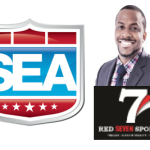
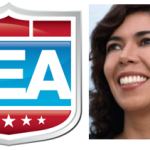
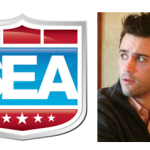
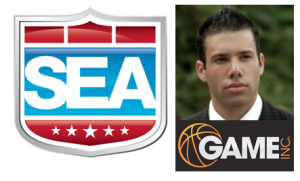
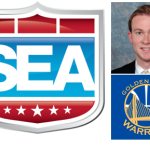
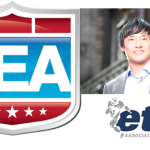
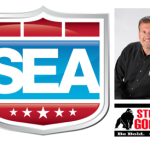
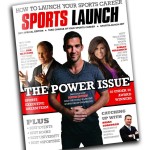
This is a great post thanks for the information..
@ikkinandcompany thanks for the RT LaTrisha!
@castro_marcos_ thanks for the RT marcos!
@cardanmedia appreciate the RT!